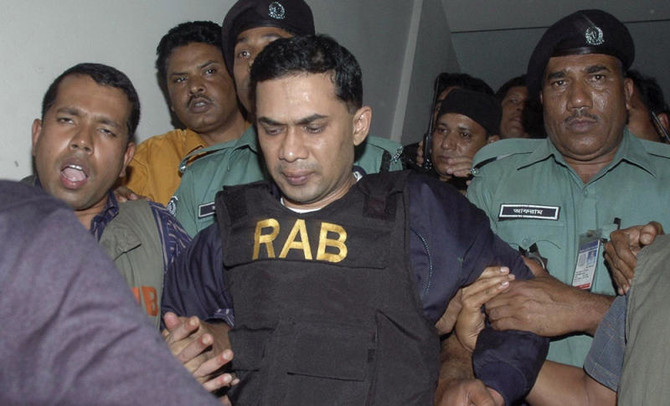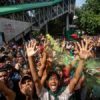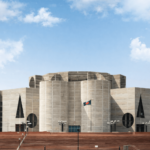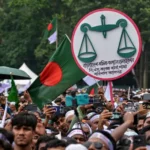 Tarique Rahman, acting chairman of the Bangladesh Nationalist Party (BNP), has been at the center of Bangladesh’s most heated political and legal battles for nearly two decades. His career reflects a dramatic cycle of convictions, acquittals, and appeals that continue to shape his image as both a controversial political heir and a potential future Prime Minister. Once branded as a conspirator in one of the country’s darkest political attacks, he now stands legally acquitted of that charge, while other corruption and financial cases remain in flux.
Tarique Rahman, acting chairman of the Bangladesh Nationalist Party (BNP), has been at the center of Bangladesh’s most heated political and legal battles for nearly two decades. His career reflects a dramatic cycle of convictions, acquittals, and appeals that continue to shape his image as both a controversial political heir and a potential future Prime Minister. Once branded as a conspirator in one of the country’s darkest political attacks, he now stands legally acquitted of that charge, while other corruption and financial cases remain in flux.
The 21 August 2004 grenade attack in Dhaka, which killed 24 people and injured hundreds at an Awami League rally, defined the early allegations against him. In 2011, after new investigations, Tarique was formally charged as a key conspirator. In 2018, a Speedy Trial Tribunal convicted him in absentia and sentenced him to life imprisonment, a verdict that his critics used to argue he was directly linked to political violence. But the legal tide shifted dramatically in December 2024 when the High Court acquitted Tarique and 48 others, citing unlawful procedures in the original trial. On 4 September 2025, the Supreme Court’s Appellate Division upheld this acquittal, rendering the earlier life sentence void and removing the biggest legal barrier to his political ambitions.
Alongside the grenade attack case, corruption allegations have followed Tarique throughout his career. A major money-laundering case filed by the Anti-Corruption Commission accused him and close associate Giasuddin Al Mamun of transferring illicit funds abroad. In 2013, a trial court acquitted him, but in 2016 the High Court reversed that verdict, sentencing him to seven years in prison and imposing a fine of Tk 20 crore. This conviction stood as a central pillar of the “corrupt politician” narrative surrounding him. Yet in December 2024, the Supreme Court stayed that sentence and admitted appeals, leaving its enforceability suspended. The case remains pending before the Appellate Division, and its outcome could decide whether Tarique faces lasting legal obstacles.
He also faced accusations in illegal wealth cases linked to his wife, Zubaida Rahman, and the Anti-Corruption Commission. In August 2023, a lower court convicted Tarique of holding assets beyond known income and sentenced him to nine years in prison. However, in May 2025, the High Court acquitted both Tarique and Zubaida, clearing them of those charges. Similarly, earlier sedition charges over remarks he made in London in 2014 were dropped, ending another legal entanglement. In addition, the long-running Zia Orphanage Trust and Zia Charitable Trust cases, which had ensnared BNP chairperson Khaleda Zia and indirectly linked Tarique, were overturned by higher courts in 2024 and 2025, erasing convictions that had once crippled BNP leadership.
The question of extradition has also loomed over his career. Since relocating to London in 2008, Tarique has avoided imprisonment in Bangladesh, even as courts passed judgments against him. Attempts to bring him back through Interpol were thwarted in 2016 when the organization deleted data related to him, citing its constitutional bar against involvement in politically motivated cases. That decision insulated him from international enforcement and ensured that his political base could continue operating from abroad.
The shifting legal outcomes present a paradox. Legally, Tarique is no longer a convicted conspirator in the grenade attack, and he has been cleared in the illegal wealth and trust cases. The only live judgment is the 2016 money-laundering conviction, which remains stayed by the Supreme Court. Politically, however, his name is still associated with allegations of corruption, abuse of power, and influence-peddling during the BNP government of 2001–2006. Critics argue that the sheer volume of charges points to a consistent pattern, while supporters insist these cases were politically motivated and meant to neutralize BNP leadership.
For Bangladesh, Tarique’s story is not only about one man’s fate but about how justice, politics, and power intersect in a deeply polarized society. His legal status has swung between conviction and acquittal depending on the era, feeding perceptions of politicized justice. His ability to return to frontline politics depends not just on the courts but also on public opinion, constitutional eligibility, and the BNP’s electoral strength. The transformation from a man once sentenced to life in prison to someone potentially eligible to become Prime Minister encapsulates the volatility of Bangladesh’s legal and political systems, raising the question of whether justice has been served or rewritten.






আপনার মতামত জানানঃ